COVID-19 and the gendered markets of people and products: explaining inequalities in infections and deaths
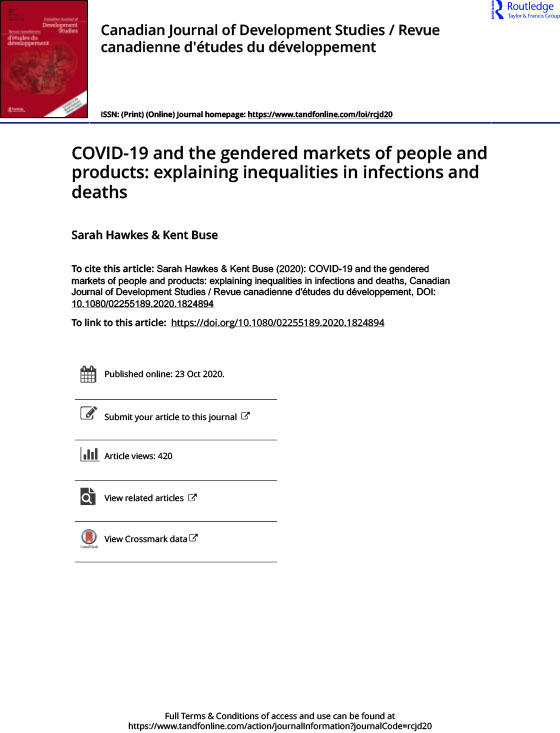
COVID-19 has exposed and exploited existing inequalities in gender to drive inequities in health outcomes. Evidence illustrates the relationship between occupation, ethnicity and gender to increase risk of infection in some places. Higher death rates are seen among people also suffering from non-communicable diseases – e.g. heart disease and lung disease driven by exposure to […]
Sex-based differences in antiretroviral therapy initiation, switching and treatment interruptions: global overview from the International Epidemiologic Databases to Evaluate AIDS (IeDEA)
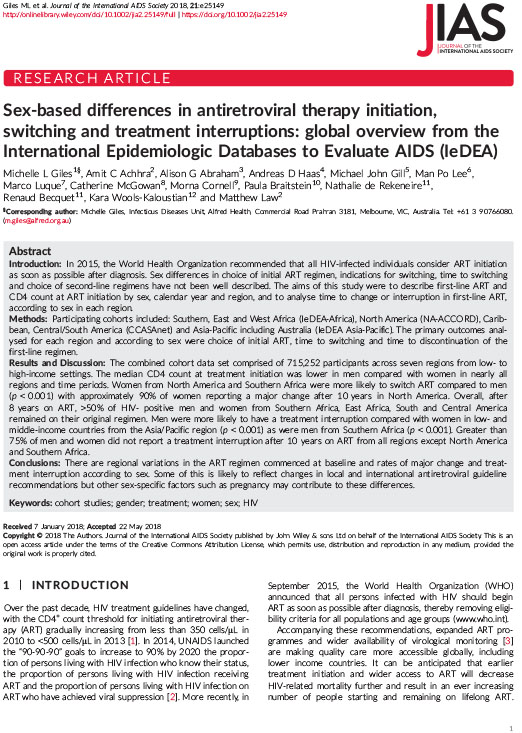
Introduction In 2015, the World Health Organization recommended that all HIV-infected individuals consider ART initiation as soon as possible after diagnosis. Sex differences in choice of initial ART regimen, indications for switching, time to switching and choice of second-line regimens have not been well described. The aims of this study were to describe first-line ART […]
The first decade of antiretroviral therapy in Africa

The past decade has seen remarkable progress in increasing access to antiretroviral therapy in resource- limited settings. Early concerns about the cost and complexity of treatment were overcome thanks to the efforts of a global coalition of health providers, activists, academics, and people living with HIV/AIDS, who argued that every effort must be made to […]
Raising the profile of men’s health
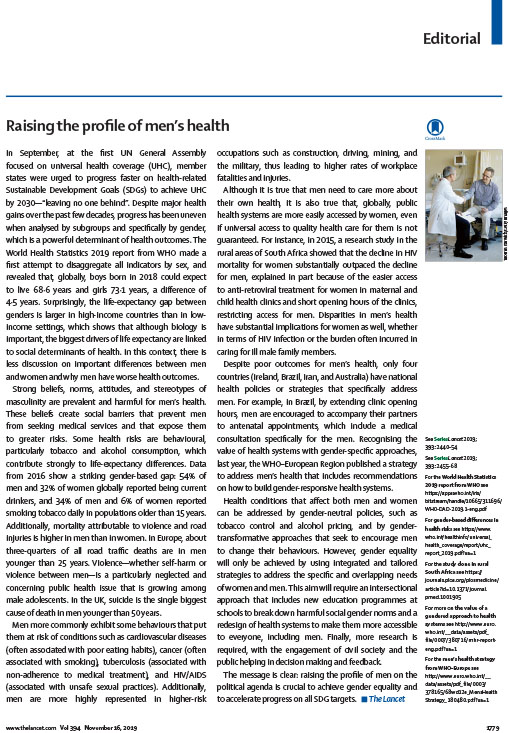
In September, at the first UN General Assembly focused on universal health coverage (UHC), member states were urged to progress faster on health-related Sustainable Development Goals (SDGs) to achieve UHC by 2030—“leaving no one behind”. Despite major health gains over the past few decades, progress has been uneven when analysed by subgroups and specifically by […]
No man left behind
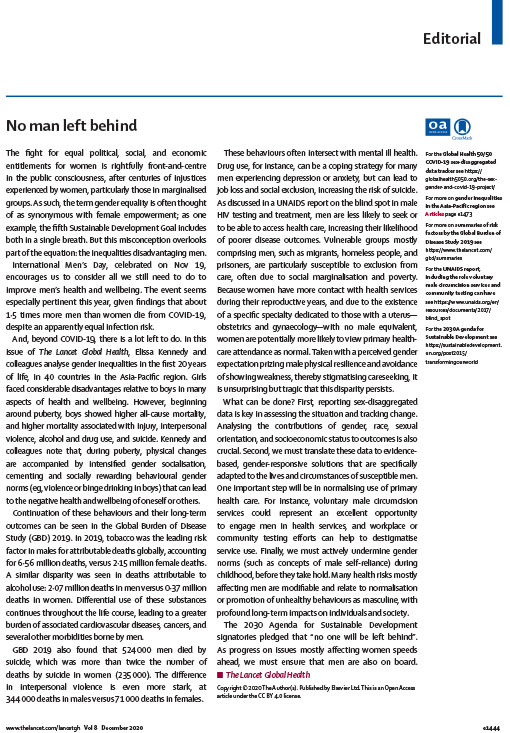
The fight for equal political, social, and economic entitlements for women is rightfully front-and-centre in the public consciousness, after centuries of injustices experienced by women, particularly those in marginalised groups. As such, the term gender equality is often thought of as synonymous with female empowerment; as one example, the fifth Sustainable Development Goal includes both […]
Men’s Perceptions of Women’s Rights and Changing Gender Relations in South Africa: Lessons for Working With Men and Boys in HIV and Antiviolence Programs

Emerging out of increased attention to gender equality within violence and HIV prevention efforts in South African society has been an intensified focus on masculinities. Garnering a deeper understanding of how men respond to shifting gender relations and rights on the ground is of urgent importance, particularly since social constructions of gender are implicated in […]
Male sex and the risk of mortality among individuals enrolled in antiretroviral therapy programs in Africa: a systematic review and meta-analysis
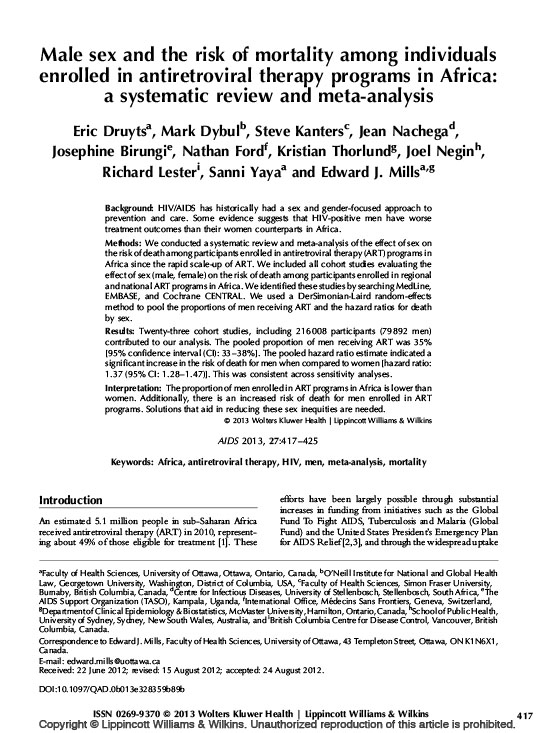
Background: HIV/AIDS has historically had a sex and gender-focused approach to prevention and care. Some evidence suggests that HIV-positive men have worse treatment outcomes than their women counterparts in Africa. Methods: We conducted a systematic review and meta-analysis of the effect of sex on the risk of death among participants enrolled in antiretroviral therapy (ART) […]
Gendered health institutions: examining the organization of health services and men’s use of HIV testing in Malawi
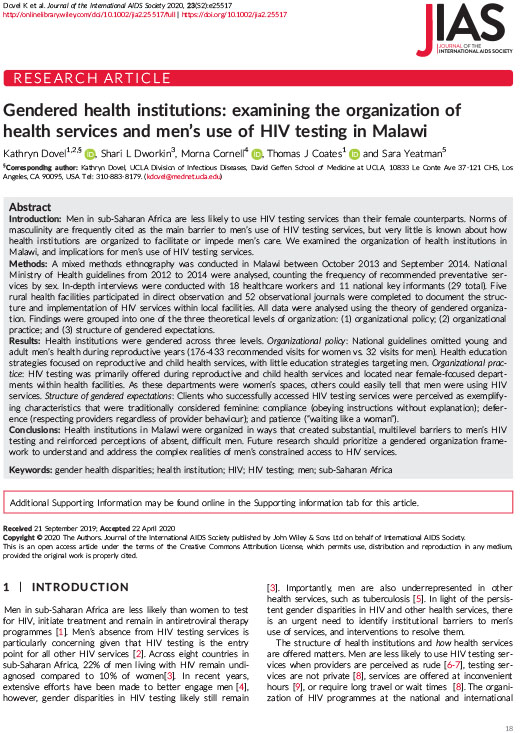
Introduction Men in sub-Saharan Africa are less likely to use HIV testing services than their female counterparts. Norms of masculinity are frequently cited as the main barrier to men’s use of HIV testing services, but very little is known about how health institutions are organized to facilitate or impede men’s care. We examined the organization […]
Frequency of visits to health facilities and HIV services offered to men, Malawi
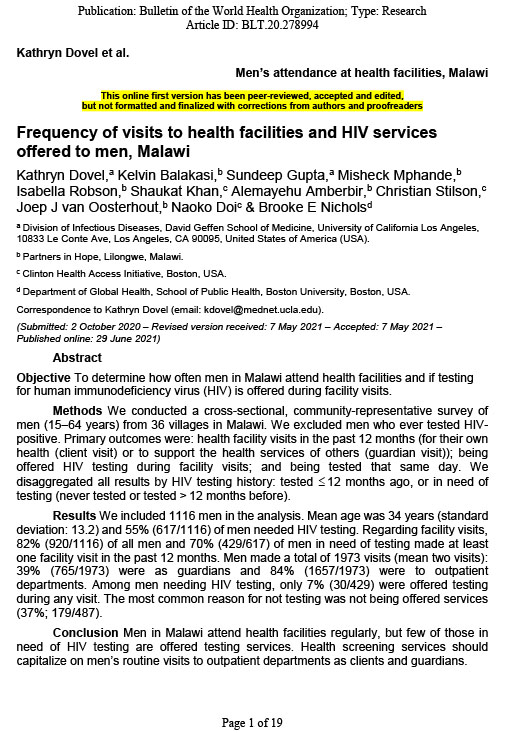
Objective To determine how often men in Malawi attend health facilities and if testing for human immunodeficiency virus (HIV) is offered during facility visits. Methods We conducted a cross-sectional, community-representative survey of men (15–64 years) from 36 villages in Malawi. We excluded men who ever tested HIV-positive. Primary outcomes were: health facility visits in the […]
Trends in Global Gender Inequality

This study investigates trends in gender inequality for the world as a whole. Using data encompassing a large majority of the world’s population, we examine world trends over recent decades for key indicators of gender inequality in education, mortality, political representation, and economic activity. We find that gender inequality is declining in virtually all major […]


